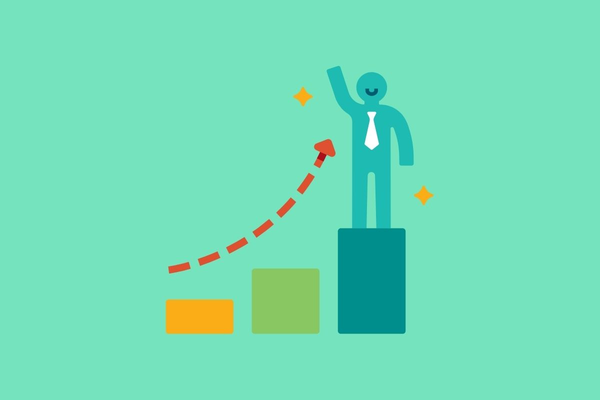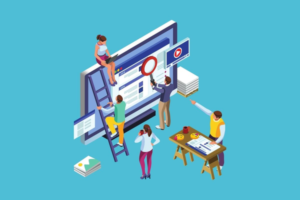Are you attempting to motivate your employees, clients or prospects? We use motivation in all aspects of the workplace, whether you are a leader trying to motivate disengaged employees or a salesperson attempting to motivate and lead your prospect to make a favourable decision. You’ve most likely learned that what motivates you doesn’t always motivate them or that motivators that worked on one employee don’t work for another. How do you know how to motivate a person?
DISC is a personality profiling test used to improve workplace productivity, teamwork and communication. DISC methodology can be helpful to generate unique ways to motivate the various DISC profile types. If you’re experiencing disengagement and motivational problems within a team or the broader workplace, you may want to consider a DISC motivators test.
What is the DISC Motivators Assessment?
The DISC motivators assessment comprises 24 questions (48 sub-questions) and takes only 8-12 minutes to complete. The motivators assessment generates unique insights into an employee’s motivators and demotivators, how they motivate others in a team, and their ideal work environment. The DISC motivators test provides practical ways that help re-engage and motivate an individual.
What does the DISC Motivators Assessment Measure?
The motivators assessment generates a straightforward and easy-to-use six-page report. This intuitive report promotes engaged employees and provides tips to motivate and avoid tasks that demotivate them.
The report includes:
- General Traits – an overview of the employee’s unique DISC personality type and their general traits.
- Motivators – a description and list of each employee’s key motivators
- Demotivators – a description and list of each employee’s demotivators
- Motivators in a Team – how the employee tends to motivate others in a team
- Motivating Work Environment – factors that when in place in an employees workplace that will help engage them in work and motivate them
DISC Personality Motivators
The Extended DISC® model is practical, easy to learn and universally applicable. It centres on patterns of observable behaviours and measures the intensity of personality types using scales of people or tasks focused and introverted or extraverted for each of the four DISC styles: Dominance, Influence, Steadiness, and Compliance. The four DISC types have an associated set of motivators and demotivators. Identifying these motivators can help managers to adapt their style and approach to a particular employee to motivate them. The motivators can also help in the broader sense to create the ideal working environment for an employee. Let’s take a look at how to motivate the DISC personality types.
Dominance (Type D Personality)
The D type personality profile, also known as Dominance or D style, is one of the four primary DISC styles. D personality types reflect individuals who like to be in control and win. Type D personality styles drive projects as they want to see positive results and get things done. To motivate the D styles, give them immediate feedback, concentrate on the subject and maintain the result orientation. They are also motivated by independent challenges, variety in their job position and workplace, and the possibility of creating something new. Remember not to frustrate a D styles desire to take action, restrict their power, or spend time on the non-essential. D types are demotivated by routine work, and they do not like repetitive tasks. The D personality type motivates others through action and toughness.
The Influence (Type I Personality)
The I type personality profile, also known as Influence or I style, is one of the four primary DISC styles. I personality types reflect individuals who are friendly, optimistic and lively. To motivate the I style, be responsive, listen, reassure, be optimistic, and check-in with them frequently for a chat. I types are also motivated through social recognition, group activities and a pleasant working atmosphere. Remember not to set unnecessary restrictions and diminish their positivity through negative reactions. I styles are demotivated by extremely reserved or aggressive people that do not encourage them. The I personality type motivates others through spending time with others, making a thoughtful impact through words, and tells stories.
Steadiness (Type S Personality)
The S type personality profile, also known as Steadiness or S style, is one of the four primary DISC styles. S styles reflect individuals who are calm, modest, and laid-back. To motivate the S personality type provide them with organized feedback and supporting material. S styles are motivated by security, familiar situations, and working with a sense of perspective. Let them finish their work and maintain continuity in their working environment. Remember not to be restless, make sudden changes or work against what was agreed. Things that demotivate the S style are sudden, insecure and unexpected situations. The S personality type motivates others through creating a calm and reliable atmosphere and their eagerness to help others.
Compliance (Type C Personality)
The C type personality profile, also known as Compliance or C style, is one of the four primary DISC styles. To motivate the C personality type provide them with detailed information and the time to think and prepare. C types require a lot of facts and detail, so be prepared to answer their questions. C personalities are motivated by a harmonious working atmosphere that provides them with opportunities to specialize. They are motivated when working in a clear working environment with organized duties and thoroughness. Remember not to hold back information from the C styles or pressure them for immediate answers. Things that demotivate the C personality type include disagreements, unclear procedures and being pressured. The C personality type motivates others through providing space and independence, providing all the information and instructions for everybody.
Common Uses of the DISC Motivators Assessment
When people experience pressure, stress, or dissatisfaction, we can usually attribute it to energy-draining activities. Therefore, it’s essential to know what kinds of activities energize each DISC profile type and what activities drain their energy. We can use the knowledge of how to motivate the DISC personality types in several areas in the workplace. The DISC motivators assessment is commonly used in the following functions:
Recruitment:
- Recruitment and Selection
- Induction
Training and Development:
- Leadership Development
- Team Effectiveness
- Sales Development
- Customer Service Training
- Coaching/Mentoring Relationships
Strategy and Management:
- Engagement/Motivation
- Change Management
- Conflict Resolution
- Culture/Transformation
Personal:
- Personal Effectiveness
- Family Relationships
- Marriage Counselling
- Career Planning
Want to get the best out of your team?
Learn how to motivate each DISC personality type effectively and boost engagement, performance, and collaboration.




